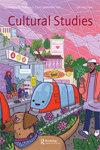反对阴谋的感觉:非洲侨民的女权主义幸福政治
IF 1.6
3区 社会学
Q1 ANTHROPOLOGY
引用次数: 0
摘要
摘要本文将散居国外的黑人女权主义幸福感描绘成一种复杂的清算,对主体形成的激进政治和社会理论进行了反思。拒绝将损失、伤害、缺乏、停滞和创伤作为散居国外黑人的定义特征的分析,非洲散居国外的女权主义幸福感取代了白人和西方作为其参照,转而支持黑人地区更困难的亲密关系,这些亲密关系想象着短暂的联盟、不可避免的不平等和散居国外社区之间的紧张关系,而不是相似性或归属感。这篇文章追踪了通常是流行类型的文本,这些文本描绘了亲密关系,承认伤害的遗产,但寻找其他根源和途径来定义黑人女性主体的现在和未来,未来往往在知情的情况下与流散生活的特定物质性和资源紧张,与黑人散居研究领域中的主流批判模式——死亡和悲观主义——关系紧张。通过全球自助类型、非洲裔文学小说、非洲青年小说和轰动的肯尼亚LGBTQ电影,本文追踪了非洲散居者女权主义幸福的一般情节,既没有发现新自由主义的受欢迎主题,也没有发现颠覆性的抵抗。如果在男性散居者的想象中,通过种族和政治身份走到一起等于一种新的社区感,那么这篇文章通过散居者幸福感追溯的女权主义谱系是令人不安的,并且对他们在资本、中产阶级资源和欲望方面的流动深感不安。我所寻找的文本并没有试图将差异抹去、扁平化或浪漫化为抵抗和共谋的两极,而是通过紧张和暂时性来定义散居海外的女权主义幸福。这些文本使用散居路径作为有利于和引导幸福感的结构,即使它们没有涉及种族、政治甚至道德社区的浪漫来寻找它们。本文章由计算机程序翻译,如有差异,请以英文原文为准。
Feeling against the plot: an African diaspora feminist politics of happiness
ABSTRACT This essay maps the uneasy terrains of Black feminist happiness in the diaspora as a complex reckoning with radical political and social theories of subject formation Refusing analytics that prioritize loss, injury, lack, stasis, and trauma as the defining features of the Black diaspora, African diaspora feminist happiness displaces whiteness and the West as its referents in favour of more difficult intimacies across Black geographies that imagine fleeting alliances, inevitable inequity, and tension across diaspora communities rather than similarity or belonging. This essay traces texts, often in popular genres, that plot intimacies that acknowledge legacies of injury but seek out other roots and routes to define the present and futures of Black feminine subjects, futures often knowingly in tension with the given materiality and resources of diaspora life, and in tension with the dominant modes of critique hewing toward death and pessimism in the field of Black diaspora studies. Through the global self-help genre, the Afropolitan literary novel, African young adult fiction, and sensational Kenyan LGBTQ cinema, this article traces the generic plots of African diaspora feminist happiness to find neither neoliberal hailed subjects nor subversive resistance. If in the masculine diaspora imagination, coming together via racial and political identity equals a new sense of community, the feminist genealogies that this essay traces through diaspora happiness are uncomfortable and deeply self-conscious about their traffic in capital and middle-class resources and desire. The texts that I look to do not attempt to erase, flatten, or romanticize difference into the poles of resistance and complicity, but instead define diaspora feminist happiness through tension and temporariness. These texts use diaspora pathways as structures of feeling conducive and conductive of happiness even as they do not engage the romance of racial, political, or even ethical community to find them.
求助全文
通过发布文献求助,成功后即可免费获取论文全文。
去求助
来源期刊

Cultural Studies
Multiple-
CiteScore
3.50
自引率
6.70%
发文量
0
期刊介绍:
Cultural Studies is an international journal which explores the relation between cultural practices, everyday life, material, economic, political, geographical and historical contexts. It fosters more open analytic, critical and political conversations by encouraging people to push the dialogue into fresh, uncharted territory. It also aims to intervene in the processes by which the existing techniques, institutions and structures of power are reproduced, resisted and transformed. Cultural Studies understands the term "culture" inclusively rather than exclusively, and publishes essays which encourage significant intellectual and political experimentation, intervention and dialogue.
 求助内容:
求助内容: 应助结果提醒方式:
应助结果提醒方式:


